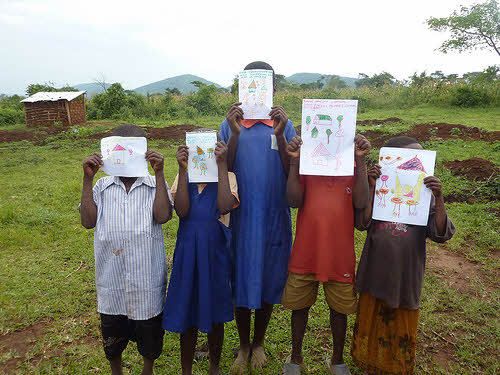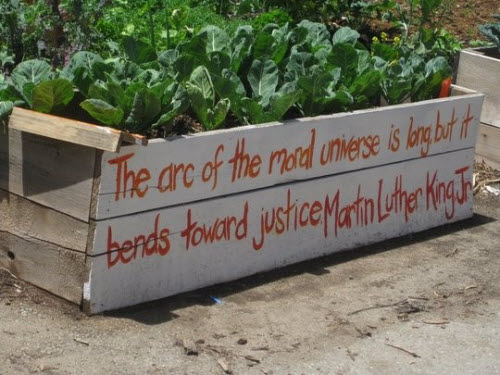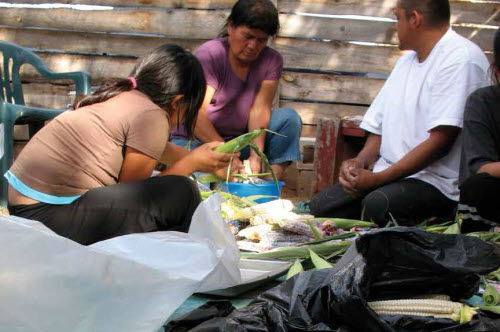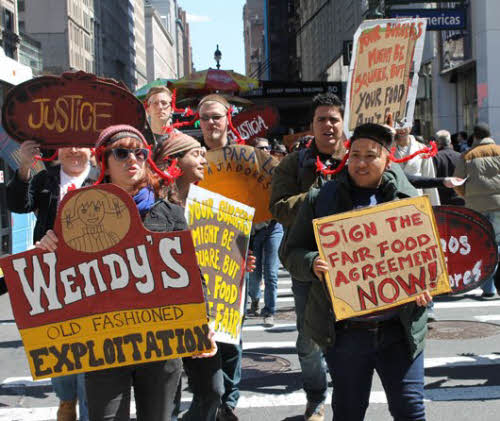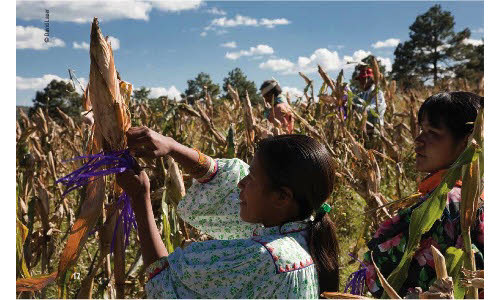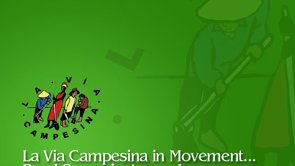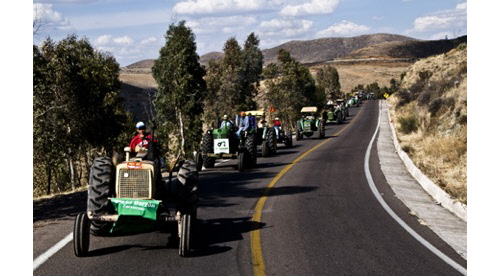Consuelo Castillo, a community organizer in Lempira, a land reform settlement in Bajo Aguán, Honduras, said, “Our goal is for everyone who is part of the land occupations to have access to land. Land is our first mother. For us farmers, we don’t have life without land.”
Tag: food justice
Harvesting Justice 23: Inherit the Earth – Land Reform in Brazil
In recent years, the voice and visibility of movements opposing land grabs and displacement, and demanding land reform, are increasing. Though relatively little land has been redistributed, organized movements of small farmers, indigenous peoples, and landless people are developing in size, strength, and organization. They are uniting across borders to break the nexus between land, agriculture, power, and profit.
Harvesting Justice 22: Land to the Tillers – Response to Land Grabs
Land reform movements, organizations of indigenous peoples, small farmers, and other citizens are responding to the increased sacking of land and other natural resources throughout the global South, and resultant spikes in landlessness and poverty.
Harvesting Justice 21: Food for Body, Food for Thought, Food for Justice – People’s Grocery in Oakland, California
The neighborhood of West Oakland in California has long been without a large grocery store, let alone one that offers healthy, fresh food. With unemployment at about 10% and nearly half the population of 30,000 residents living at or below the poverty line, West Oakland is a neighborhood that grocery store chains have claimed isn’t able to sustain a full-functioning store. People’s Grocery aims to prove traditional grocers wrong.
Harvesting Justice 16: Putting the Culture Back in Agriculture – Reviving Native Food & Farming Traditions
Native peoples’ efforts to protect their crop varieties and agricultural heritage in the US go back 500 years to when the Spanish conquistadors arrived. Today, Native communities throughout the US are reclaiming and reviving land, water, seeds, and traditional food and farming practices, thereby putting the culture back in agriculture and agriculture back in local hands.
Harvesting Justice 14: A Penny a Pound, Plus Power – the Coalition of Immokalee Workers Changes History
For most tomato pickers in the US, a bucket brings in 50 cents, a piece rate that has remained virtually unchanged for more than 30 years. Because the rate is set so low, a worker has to pick more than two and a quarter tons of tomatoes per day – the weight of a young elephant – to make the minimum wage. The Coalition of Immokalee Workers is transforming all of this.
Harvesting Justice #4: Women’s Work – Gender and the Global Food System
Women produce 60 to 80 percent of all food, both as subsistence farmers and as agricultural wage laborers. They are the primary providers for the majority of the world’s 925 million hungry people, obtaining food, collecting firewood and water, and cooking. And yet they have less access to land and the resources necessary to grow on it than their male counterparts. Inequitable distribution of land, labor, and resources leaves farming women triply burdened by work: in the fields, in the home, and in society.
Harvesting Justice #2: Think Globally, Eat Locally
Food sovereignty is rooted in the daily work of every small farmer, rancher, fisherperson, landless farm worker, and everyone else involved in local food production. Yet no matter what they produce, their ability to survive is affected by international market forces. The movement, therefore, also includes community, national, and international activists working for just trade and economic systems.
Harvesting Justice: Transforming the Global Food Supply Chain – Food Sovereignty
From community gardens to just global policy, a national and global movement is growing to reclaim food, land, and agricultural systems from agribusiness and put them back in the hands of citizens.



